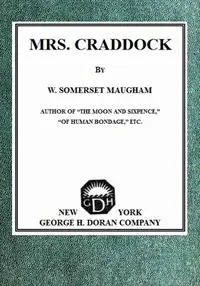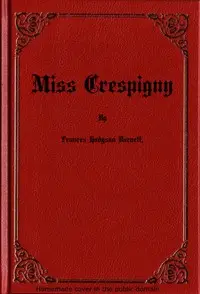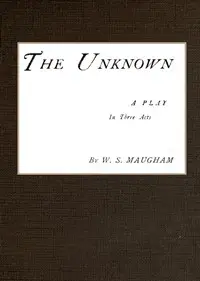** "Mrs. Craddock" by W. Somerset Maugham is a story set in the early 1900s that centers around Bertha Ley, a spirited young woman residing with her aunt on a rundown estate in Kent. Bertha's life takes a turn when she falls for Edward Craddock, a strong tenant farmer who captures her heart. The book looks at the difficulties of love across social classes and the strict rules of society. Bertha, initially bored with her predictable life under her aunt's supervision, finds herself drawn to Edward, rekindling childhood feelings and sparking a romance that goes against what is expected. As they deal with their complicated relationship, Bertha's strong will and determination drive her to fight for a love that promises happiness, despite pressure from her aunt and community. This sets the scene for a tale of difficult choices and social challenges. **

Mrs. Craddock
By W. Somerset (William Somerset) Maugham
** In a world of social expectations, a woman's passion ignites a forbidden romance that threatens to shatter the boundaries of class and tradition.
Summary
About the AuthorWilliam Somerset Maugham was an English writer, known for his plays, novels and short stories. Born in Paris, where he spent his first ten years, Maugham was schooled in England and went to a German university. He became a medical student in London and qualified as a physician in 1897. He never practised medicine, and became a full-time writer. His first novel, Liza of Lambeth (1897), a study of life in the slums, attracted attention, but it was as a playwright that he first achieved national celebrity. By 1908 he had four plays running at once in the West End of London. He wrote his 32nd and last play in 1933, after which he abandoned the theatre and concentrated on novels and short stories.
William Somerset Maugham was an English writer, known for his plays, novels and short stories. Born in Paris, where he spent his first ten years, Maugham was schooled in England and went to a German university. He became a medical student in London and qualified as a physician in 1897. He never practised medicine, and became a full-time writer. His first novel, Liza of Lambeth (1897), a study of life in the slums, attracted attention, but it was as a playwright that he first achieved national celebrity. By 1908 he had four plays running at once in the West End of London. He wrote his 32nd and last play in 1933, after which he abandoned the theatre and concentrated on novels and short stories.













